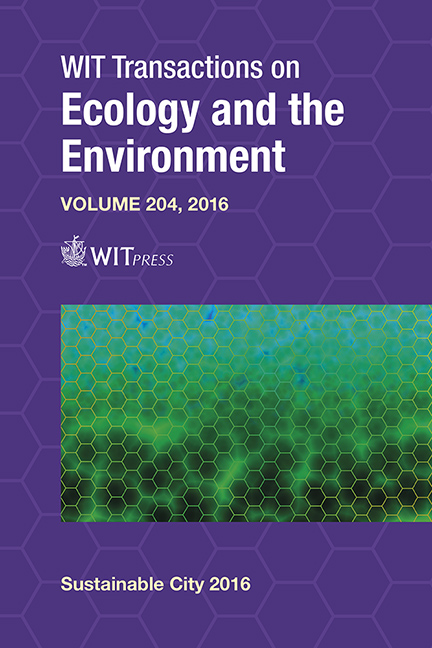Developing A Framework For Evaluating Equity In Informal Urban Land Development System In Sub-Saharan Africa
Price
Free (open access)
Transaction
Volume
204
Pages
13
Page Range
225 - 237
Published
2016
Size
348 kb
Paper DOI
10.2495/SC160191
Copyright
WIT Press
Author(s)
K. G. Baffour Awuah
Abstract
Equity has resurfaced as an essential concept of good governance to achieve sustainable urban land development in the developing world particularly Sub-Saharan Africa (SSA). However, formal urban land development system in SSA has largely proven ineffective to promote equity in urban land development. It is suggested that approaches under the informal urban land development system in SSA could offer useful lessons to promote equity in urban land development. Yet limited work has been conducted on evaluation of equity within the informal urban development system in the region. Nevertheless, evaluation of equity within the informal urban land development system in SSA will a priori require a suitable evaluation framework. Based on a review of the relevant literature, this study interrogates the concept of equity in urban land development. The aim is to offer insights to contribute to the development of a comprehensive framework for evaluation of equity within the urban informal land development system in SSA. It is established that equity in urban land development could be a very elusive concept. However, a combination of two broad pathways is often used to evaluate the concept in urban land development. These are: 1. the procedure/process of urban land development system; and 2. Impact/effect of urban development and management policies. It is also established that equity in urban development and management may be perceived and measured differently by different actors. Drawing on insights from the pathways and their proxies, the study identifies a set of indicators for calibrating equity in informal urban land development. This set of indicators could be a useful starting point for academics, researchers, policy makers and international development agencies to develop bespoke evaluation frameworks for evaluation of equity in location specific informal urban development systems in SSA. However, given that equity in informal urban development and management could be perceived and measured differently, the development of such frameworks should be preceded by exploration of perception of equity within subject communities to refine and add to the identified indicators.
Keywords
equity, evaluation, indicators, informal, land, management, system, sustainable, Sub-Saharan Africa, urban development





